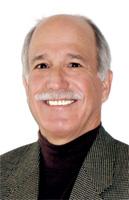This decade ends in the dust of the global financial crisis. Many are furious at the banks for their greed and shortsighted compensation schemes. The response from financiers is that if we don’t pay top people top dollar, we’ll lose talent.
Roger Bootle’s Christmas letter this year included a stunning quote from a report by the Bank of England that stated had discretionary pay been 20% lower each year from 2000 to 2008, the banks would have had plenty of capital to deal with the recent crisis.
Goldman Sachs lost more than $3 billion in the last four months of 2008 and is “on track” according to Fortune to pay out $21 billion in bonus in 2009. Like their competitors, Goldman’s bonuses are based on yearly profits. If you deduct 20%, that still leaves a significant $16.8 billion. Not chump change but any means.
The United States economy is built on risk taking and entrepreneurism. We love the Apple, Google, WalMart and Federal Express stories with good reason – They’ve made all our lives better and provided thousands of jobs. Europe palls in terms of job creation. Risk taking should be rewarded.
Enter what’s called “moral hazard”. Moral hazard is when a party is insulated from risks they normally would have been exposed to. In the financial crisis, governments around the globe bailed out institutions who were “Too Big to Fail”. This twists the rules governing risk to: if I win, I get the rewards; if I lose, I get help. That’s not the risk taking tradition we’re proud of.
But there’s more. Everyone who took or was effectively forced to take TARP money has or will shortly pay it back. Why? So they can pay the salaries they deem essential to pay top talent. Here’s my question: What is the best use of that money for the firm and society at large?
In a truly global economy, leaders need to think wider in time and trust. Wall St. and Main St. are entangled through 401k and pension plans. And the entanglement extends financial centers around the globe. At the same time, there’s a seismic shift occurring from west to east in economic power and competitiveness. Those in the east are rising in power and leaning into the future while many in the west cling to the past present and self interest. The impact won’t be significant in next quarter’s earnings but leaders who are thinking wider will be adjusting now. Are you leaning into the future?

 I'm Christopher Meyer - author of Fast Cycle Time, Relentless Growth and several Harvard Business Review articles.
I'm Christopher Meyer - author of Fast Cycle Time, Relentless Growth and several Harvard Business Review articles. 